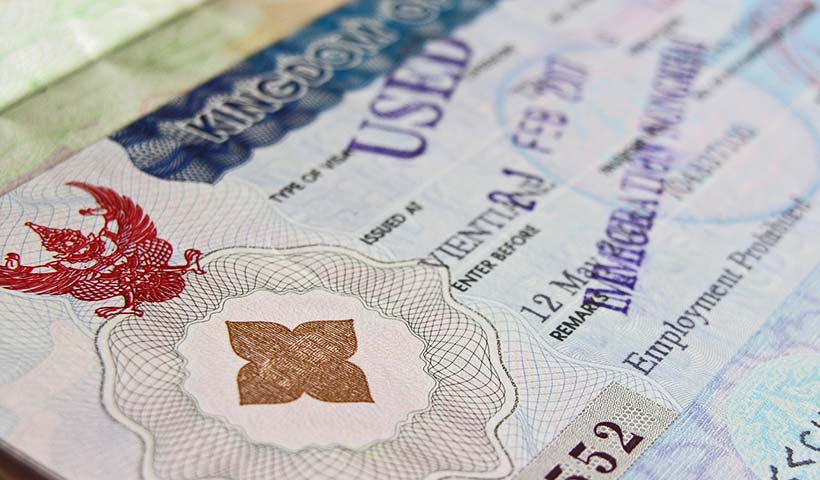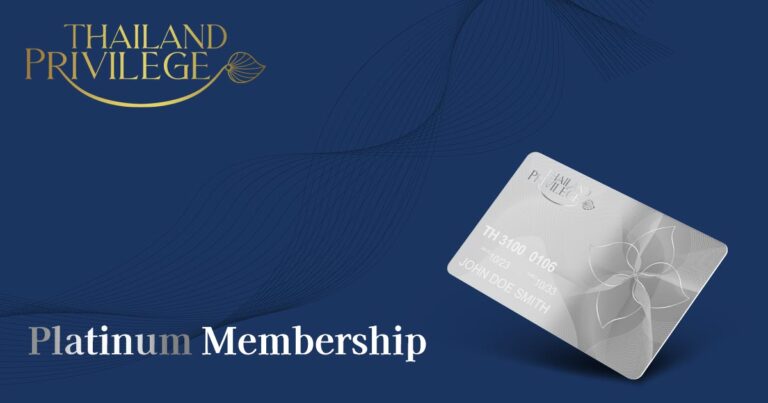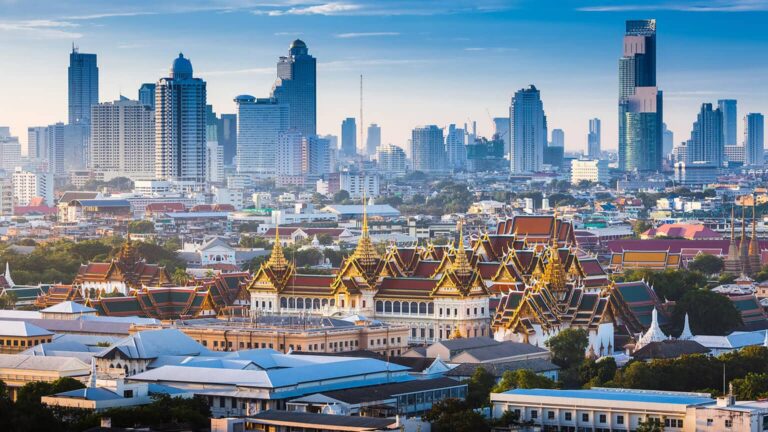Unlocking the Path to Thai Citizenship: The Ultimate Guide to Thailand Permanent Residence
Unlocking the Path to Thai Citizenship: The Ultimate Guide to Thailand Permanent Residence offers a comprehensive and informative overview of the process and requirements for obtaining permanent residence in Thailand.
Written in a professional and objective manner, this guide provides detailed information on the benefits, limitations, and application process.
With a focus on facts and regulations, it aims to equip readers with the necessary knowledge to navigate the path towards Thai citizenship.
Key Takeaways
- Permanent residence in Thailand is a step towards Thai citizenship, allowing individuals to enjoy benefits such as visa-free stay and access to Thai passport control lane.
- Advantages of Thailand permanent residence include exemption from 90-day notifications and TM30 reporting, easier administrative processes with normal house registration, dependent visas for spouse and children, and access to the same line as Thai citizens at the airport.
- Limitations of Thailand permanent residence include maximum continuous absence from Thailand, requirement for a work permit, need for a re-entry permit before leaving Thailand, inability to buy a house or property, and notification at a local police station every 5 years.
- Requirements for Thailand permanent residence include holding a non-immigrant visa and staying in Thailand for at least 3 years, active visa extension during the application, and different requirements for each category (investment, employment, humanitarian, expert, extra circumstances).
Understanding the Importance of Thai Permanent Residence
Why is understanding the importance of Thai Permanent Residence crucial for individuals seeking long-term residency in Thailand?
Thai Permanent Residence is a significant step towards obtaining Thai citizenship and offers numerous benefits for individuals looking to establish a long-term presence in Thailand. By obtaining permanent residence, individuals can enjoy visa-free stays in the country, access Thai passport control lanes, and have the convenience of exemption from 90-day notifications and TM30 reporting.
Additionally, permanent residents can enjoy easier administrative processes with normal house registration, obtain dependent visas for their spouse and children, and avoid the need to send money from abroad to purchase a condo. However, it is important to note that there are limitations to permanent residence, such as the maximum continuous absence from Thailand and the requirement for a work permit.
Understanding these advantages and limitations is crucial for individuals seeking to make informed decisions about their long-term residency options in Thailand.
Advantages and Limitations of Holding Thai Permanent Residence
One of the key advantages of holding Thai permanent residence is the exemption from 90-day notifications and TM30 reporting. This means that individuals with permanent residence are not required to report their whereabouts every 90 days or notify immigration authorities when staying at a different address.
Another advantage is the easier administrative process with normal house registration, which simplifies tasks like opening a bank account or registering a vehicle. Permanent residents also have the benefit of being able to obtain dependent visas for their spouse and children, allowing their family members to live in Thailand without the need for separate visas.
Additionally, permanent residents are allowed access to the same line as Thai citizens at the airport, which can help expedite the immigration process.
However, there are limitations to holding Thai Permanent Residence, such as a maximum continuous absence from Thailand, the requirement for a work permit if employed, the need for a re-entry permit before leaving Thailand, the inability to buy a house or property, and the requirement to notify at a local police station every 5 years.
Exploring the Different Categories for Thai Permanent Residence
The different categories for Thai Permanent Residence can be explored to determine the most suitable option for individuals seeking long-term residency in Thailand. Here are the categories to consider:
- Investment category: This category requires bringing money from abroad for investment purposes.
- Employment category: To qualify under this category, individuals must run a business or work in Thailand.
- Humanitarian category: This category is for individuals who have contributed significantly to Thai society.
- Expert category: Individuals with exceptional skills in the fields of science, technology, or art can apply under this category.
- Extra circumstances category: For those who do not fit into the other categories, this category allows for consideration based on special circumstances.
Each category has its own specific requirements and criteria that applicants must meet. It is important to thoroughly research and understand the requirements of each category before deciding which one to pursue.
Navigating the Application Process for Thai Permanent Residence
To successfully navigate the application process for Thai Permanent Residence, it is crucial to thoroughly understand the requirements and procedures involved. As an immigration specialist or consultant, it is my duty to provide clear and detailed information about this topic.
The application process for Thai Permanent Residence involves several stages. Firstly, applicants need to submit their applications at various immigration offices in Thailand. This is followed by a document filing stage, an interview, an evaluation, and final approval. It is important to note that the application process is subject to a yearly quota for the number of people who can obtain permanent residence permits.
To ensure a smooth application process, it is advisable to contact the Chaeng Wattana immigration office for specific requirements. It is also important to be prepared for an extensive paperwork and document legalization process. During the interview, applicants can expect to be asked a list of commonly asked questions in Thai.
The evaluation is conducted by the Immigration Commission, which uses a point system and considers various factors. The final approval is granted by the Minister of the Interior. Once approved, applicants will receive a permanent residence certificate and an alien book.
Key Steps to Obtaining Thai Permanent Residence
How can one effectively navigate the key steps to obtaining Thai Permanent Residence? Here are the key steps to follow:
- Determine eligibility: Check if you meet the requirements, such as holding a non-immigrant visa, staying in Thailand for at least 3 years, and meeting specific criteria based on the chosen category (investment, employment, humanitarian, expert, extra circumstances).
- Prepare documents: Gather the required documents, which may include passport, visa, work permit, financial statements, educational certificates, and more. Ensure that all documents are complete and properly legalized.
- Submit the application: Submit the application form and supporting documents to the designated immigration office in Thailand. Be prepared for an interview and evaluation process.
- Wait for approval: The application will go through stages of review, including document filing, interview, evaluation, and final approval. The Immigration Commission will evaluate the application based on a point system and other factors.
- Obtain permanent residence certificate: Once approved, you will receive a permanent residence certificate and alien book.
Remember to consult with the Chaeng Wattana immigration office for specific requirements and guidelines throughout the process.
Additional Tips and Information for Thai Permanent Residence
Cost and Duration of Thai Permanent Residence Application Process
The application process for Thai Permanent Residence involves certain costs and takes a specific amount of time to complete. It is important to be aware of these factors before embarking on the journey towards obtaining permanent residency in Thailand.
In terms of cost, applicants should be prepared to pay government fees for the application, as well as expenses associated with document preparation and legalization. The exact amount can vary depending on individual circumstances and the specific immigration office where the application is submitted.
Regarding the duration of the application process, it typically takes several months to complete. This includes stages such as document filing, an interview, evaluation by the Immigration Commission, and final approval from the Minister of the Interior. It is important to note that there is a yearly quota for the number of people who can obtain permanent residence permits, which may affect the processing time.
It is advisable to consult with immigration specialists or consultants to obtain accurate and up-to-date information regarding the costs and duration of the Thai Permanent Residence application process.

The Thailand Elite Visa: An Alternative Option for Long-Term Stays
While permanent residence is a popular option for long-term stays in Thailand, an alternative option to consider is the Thailand Elite Visa.
The Thailand Privilege Card Company Limited, which oversees this visa program, offers its holders a variety of advantages and privileges.
Here are five key features of the Thailand Elite Visa:
- Long-term stay: The visa allows for a long-term stay in Thailand, with options ranging from 5 to 20 years, depending on the chosen membership package.
- Visa-free travel: Holders of the Thailand Elite Visa enjoy visa-free travel to Thailand, eliminating the need for frequent visa runs or extensions.
- VIP services: Members receive exclusive VIP services, including expedited immigration and customs clearance, as well as access to VIP lounges at airports.
- Special privileges: The visa provides access to various privileges, such as golf club memberships, spa treatments, and discounts on shopping and dining.
- Investment opportunities: Certain membership packages offer investment opportunities in Thailand, such as real estate and business ventures.
The Thailand Elite Visa offers an attractive option for individuals seeking a long-term stay in Thailand with added benefits and privileges.
The Cost and Timeline of Applying for Thai Permanent Residence
Applying for Thai Permanent Residence involves both financial considerations and a specific timeline for completion.
The cost of applying for Thai Permanent Residence includes government fees and document preparation. Government fees vary depending on the category under which the application is being made, such as investment, employment, humanitarian, expert, or extra circumstances. Additional costs may include translation and legalization of documents.
The timeline for obtaining Thai Permanent Residence can vary, but generally, the process can take several months to over a year. It involves stages such as document filing, an interview conducted in Thai, evaluation by the Immigration Commission, and final approval from the Minister of the Interior.
It is important to note that the timeline may be affected by factors such as the yearly quota for the number of people who can obtain permanent residence permits.
Maintaining Active Permanent Residence in Thailand
Effectively maintaining active permanent residence in Thailand is crucial for individuals seeking to enjoy the benefits and privileges associated with this status. To maintain active permanent residence in Thailand, individuals must adhere to certain requirements and obligations. Here are some important considerations:
- Regularly update and renew your visa or stay permit to ensure continuous legal presence in Thailand.
- Comply with Thai laws and regulations, including reporting any changes of address or personal information to the authorities.
- Obtain endorsements and re-entry permits when leaving the country to avoid jeopardizing your permanent residence status.
- Fulfill any obligations, such as filing annual tax returns and paying taxes, as required by Thai law.
- Stay informed about any updates or changes in immigration policies and regulations to ensure compliance.
Preparing for Thai Permanent Residence: Documents and Profile Building
To ensure a smooth and successful application process for Thai Permanent Residence, it is essential to compile the necessary documents and build a strong profile.
The first step is to gather all the required documents, which may include a valid passport, non-immigrant visa, work permit (if applicable), proof of financial resources, criminal record check, health certificate, and marriage or birth certificates (if applicable). It is important to ensure that all documents are up-to-date, translated into Thai, and properly legalized.
Building a strong profile involves highlighting your qualifications, accomplishments, and contributions to Thailand. This can be done by providing evidence of education, professional experience, skills, and any other relevant achievements. It is also recommended to obtain recommendation letters from reputable individuals or organizations.
Frequently Asked Questions
Can I Apply for Thailand Permanent Residence if I Have a Criminal Record?
Yes, you can apply for Thailand permanent residence even if you have a criminal record. However, the decision will depend on the severity of the offense and other factors. It is recommended to consult with an immigration specialist for specific advice.
Is There an Age Limit for Applying for Thailand Permanent Residence?
There is no age limit for applying for Thailand Permanent Residence. However, applicants must meet specific requirements, such as holding a non-immigrant visa, staying in Thailand for at least 3 years, and fulfilling category-specific criteria.
Can I Apply for Thailand Permanent Residence if I Have Been Previously Deported From the Country?
Yes, you can apply for Thailand permanent residence even if you have been previously deported from the country. However, it is important to note that the application process may be more complex and additional documentation may be required.
Can I Apply for Thailand Permanent Residence if I Have a Medical Condition or Disability?
Yes, individuals with medical conditions or disabilities can apply for Thailand permanent residence. However, they must meet the specific requirements outlined by the Thai government and provide necessary documentation to support their application.
Are There Any Restrictions on the Types of Businesses I Can Run or Work in if I Hold Thailand Permanent Residence?
There are restrictions on the types of businesses you can run or work in if you hold Thailand permanent residence. The specific requirements and limitations depend on the category of permanent residence you hold.
Conclusion
In conclusion, obtaining permanent residence in Thailand is a significant step towards Thai citizenship. It offers numerous advantages, such as exemption from notifications and easier administrative processes. However, there are limitations, including the maximum continuous absence and the requirement for a work permit.
The application process involves meeting specific requirements based on different categories and submitting extensive paperwork. Alternative options like the Thailand Elite Visa are also available.
It is important to understand the costs, timelines, and requirements to maintain active permanent residence in Thailand.







